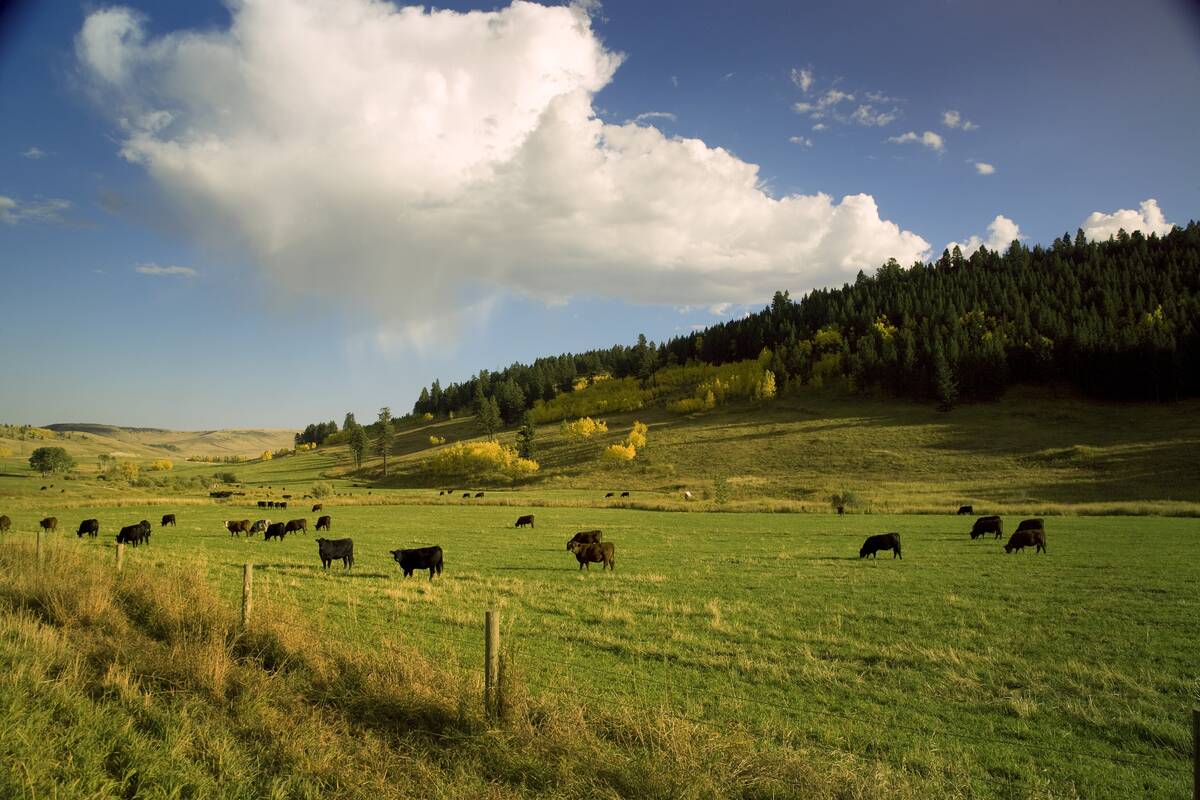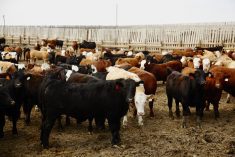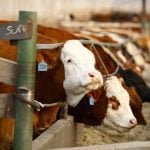I am writing this article almost two weeks after becoming the new president of the Canadian Cattle Association (CCA). I am honoured to step into this role and continue having conversations about the Canada-U.S. trade relationship and to advocate for the continued integration of the North American live cattle and beef supply chain and improvements to business risk management programs. I’m sure that we will also face challenges that we can’t foresee right now, but I am confident that we are prepared to face them together. I also look forward to being able to share the positive outcomes of CCA’s ongoing advocacy efforts.
To reach more producers, I have started recording some short video clips that are being shared on CCA’s Facebook, Twitter/X and LinkedIn accounts. Manitoba Beef Producers has shared the first videos on the association’s account and by the time you read this message, you may see these videos on more provincial platforms. There are so many different types of social media platforms, and we all receive so many emails and text messages every day that it can be very difficult to be heard when you have something to share and to find information that is important to you, especially if you’re not certain when you should be looking for it. I hope that these videos will help CCA’s posts stand out in your social media feeds.
CCA had planned a Washington fly-in during the last week of March to talk with ag-focused senators and members of the House of Representatives before the April 2 tariff deadline. Over three days, we participated in 16 meetings with congressmen and congresswomen (and/or their staff), the USDA deputy undersecretary of trade, and Canadian embassy officials. In each meeting, CCA had the opportunity to discuss the Canada-U.S. trade relationship, the integration of the North American live cattle and beef supply chain, and to advocate for continued integration of the North American live cattle and beef supply chain. As of the most recent tariff announcement on April 2, products that are compliant with the U.S.-Mexico-Canada Agreement will remain exempt, which includes both Canadian live cattle and beef.
Read Also

The Canadian Cattle Association’s international advocacy efforts
Global ag policies affect Canadian food policy, so the Canadian Cattle Association participates in international and domestic forums
Overall, I thought the meetings went well considering the environment and believe it was well worth the effort and time. We were very well received in all our meetings; each conversation was respectful and frank with generally well-informed and engaged individuals. Although there do not appear to be changes on the horizon, CCA will continue advocating for an integrated North American cattle market and for business risk management programs to provide meaningful aid when it is needed.
Since our column in the last edition, CCA hosted a producer town hall. Despite the combined best efforts of Canadian industries and our government, and some earlier postponements, tariffs were implemented on March 4. When we knew for certain that live cattle and beef were affected, CCA quickly put together a virtual producer town hall for the following week so that we could share as much information as was available, share updates on our advocacy efforts and answer producer questions. Nearly 300 producers and industry representatives attended. The town hall presentations and discussion covered CCA’s advocacy efforts over the first 10 weeks of 2025, economic analysis of the effect that tariffs would have, business risk management programs, regulations and answering producer questions.
In mid-March CCA held an AGM in Ottawa and because Parliament was not in session, we were able to connect with government officials as well as some foreign diplomats interested in learning more about Canadian beef and how it is produced. As you can imagine, during the annual meeting, tariff threats and their implications played a significant role in the discussions of members in attendance. The board and directors had very good discussions about ongoing and evolving issues. Agriculture and Agri-Food Canada, Canadian Food Inspection Agency, Canadian Cattle Identification Agency, National Cattlemen’s Beef Association and Canadian Agriculture Policy Institute representatives presented at committee meetings. We were pleased to learn about steps being taken to reduce regulatory burdens that will support the Canadian beef sector and grow our global competitiveness. When dealing with an issue such as tariffs, the industry needs to look at the business risk management tools available, ensure they will work and figure out how the government can support them better.
I was recently asked for my thoughts about the future of the North American cattle industry. I believe that the North American cattle market is complementary. We are more efficient together from a global perspective. CCA is committed to continued advocacy on behalf of an integrated North American cattle market, and we hope that it will prevail.
– Tyler Fulton is president of the Canadian Cattle Association.
















